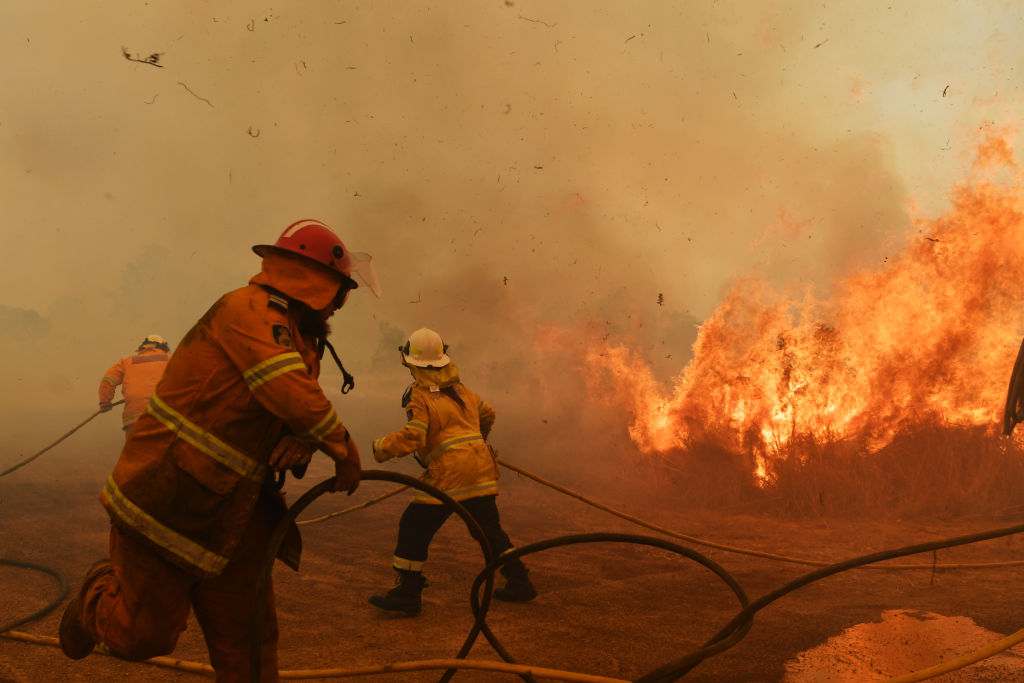National security wrap

The beat
AFP and Europol trap cyber rats
Law enforcement agencies from Europe and Australia have dismantled an international cybercrime operation involving the use of malware known as ‘Imminent Monitor Remote Access Trojan’, or IM-RAT. The operation was led by the Australian Federal Police, and Europol and Eurojust provided assistance with coordinating the European agencies involved. The investigation found that the malware had been sold to more than 14,500 buyers in 124 countries. Officers executed 85 warrants, seized 434 devices and arrested 13 people in the bust.
Chinese and Serbian police units hold joint training
China’s special police joined Serbian anti-terrorist and local police in an exercise at a Chinese-owned steel mill outside Belgrade. The exercise marks the first time China’s special police have taken part in joint training drills in Europe. Officers worked together to rescue hostages in a staged raid. In September, Chinese police officers were deployed in Serbia to help deal with the growing number of Chinese tourists and workers there.
Amazon’s Ring provided US police with video doorbell map
CNET has revealed that for more than a year, Amazon’s home surveillance company, Ring, provided hundreds of US police departments with a detailed heat map of all its video doorbells. Police with access to the map could zoom in on specific locations, down to the street level, and also type in specific addresses to see whether there were any Ring devices in the surrounding area. The feature was removed in July.
Checkpoint
Tories pledge to introduce US- and Australian-style immigration controls
The UK Conservatives have vowed to strengthen border security, if they win next week’s election, by introducing a US-style electronic travel authorisation visa-waiver system, which all visitors would need to apply for. Alongside automated entrance and exit checks, the Tories say the system would help ‘screen arrivals against watchlists and block those deemed to be a threat from entering the UK’. The party also indicated that it plans to introduce an Australian-style points-based immigration system if it wins the election.
US proposes facial recognition expansion
The US Department of Homeland Security has proposed changing existing regulations to allow the use of facial-recognition technology on all people entering and leaving the country, including US citizens. According to an official, the change is in the ‘final stages of clearance’, though it won’t go into effect until after a period of public comment. A Democrat senator is planning legislation to block the proposal, which he says would ‘amount to disturbing government coercion’.
Turkey and Libya sign maritime border deal
Turkey has signed a deal with Libya to delimit maritime zones in the Mediterranean Sea, as a means of ‘protecting Turkey’s rights’. The agreement has already drawn anger from Greece, Egypt and Cyprus, which deemed the delimitation a ‘serious violation of international law’. This latest move has escalated tensions in the Mediterranean, spurred by conflicting claims over energy resources.
CT scan
Fake explosives used to generate fear
Two people were killed and three wounded in a terrorist attack on London Bridge on Friday. The attacker, Usman Khan, had been convicted of terrorism offences and was on parole when the attack occurred. Khan was wearing a ‘hoax explosive device’ similar to the ones used in the 2017 London Bridge attacks that killed 11 people. In 2016, an media group linked to Islamic State urged would-be attackers to wear fake explosives to create more fear and confusion.
Reward offered for high-ranking US terrorist
The US State Department is offering US$5 million for information that leads to the arrest of a US citizen on the FBI’s most wanted terrorist list. Jehad Serwan Mostafa is wanted for providing material support from 2008 to 2017 to Somali terrorist group al-Shabaab. The FBI believes that Mostafa is the ‘highest-ranking United States citizen fighting overseas for a terrorist organization’, having learned earlier this year that he is a leader in the group’s ‘explosives department’.
Right-wing extremism cases mount in German army
Germany’s Bundeswehr will suspend an officer of its special forces for being involved in far-right extremism following a months-long intelligence operation by the military counterintelligence service. Defence Minister Annegret Kramp-Karrenbauer said that the German special forces have a ‘special responsibility to counter any tendency toward radicalism’. Another 20 members of the elite unit, and a total of 450 across the German military, are being investigated for links to right-wing extremism.
First responder
Samoa shuts down government to combat measles epidemic
Samoa is in the midst of a two-day government shutdown in which all branches, except the water and electricity sectors, are closed as workers assist in a vaccination campaign in response to the measles outbreak. The shutdown comes as authorities ask unvaccinated families to display red flags outside their homes to help alert the community. The New Zealand Defence Force is providing logistics support and medical supplies and the UK is sending 13 doctors to assist in the program.
EU satellite tracks Australian bushfires
The EU’s Copernicus satellite emergency management service has been activated by the Australian government to assist with tracking bushfires in New South Wales. As part of the service, a team based in Belgium produced the year’s largest emergency mapping operation. The 29 maps provided to firefighters are designed to help them form a plan for fighting the fires based on their predicted movement.
Climate tipping points on the move
Scientists have warned that there’s evidence that more than half the climate tipping points identified a decade ago have been activated much earlier than expected. Tipping points occur when specific impacts of global warming become irreversible. Impacts can start to cascade once tipping points are reached, but there’s uncertainty over how they interact with each other. Scientists say the tipping points pose an ‘existential threat to civilisation’.